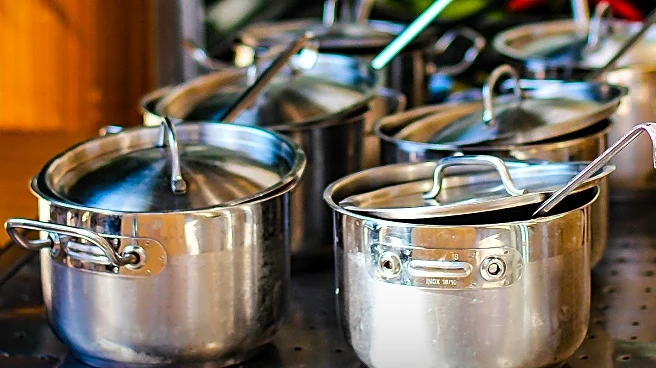What's Happening?
A study by Australian researchers has found that plastic and nonstick cookware release microplastics into food during cooking, increasing exposure to these pollutants. Teflon-coated cookware can contain
millions of microplastic particles, and a crack in a pan can release over 2 million particles. Microplastics are also found in plastic food containers, utensils, and tea bags, posing potential health risks through inhalation, ingestion, or touch.
Why It's Important?
Microplastics are linked to health issues such as heart attacks, strokes, and tissue inflammation. Their pervasive presence in everyday items raises concerns about long-term health impacts. The study prompts a reevaluation of kitchen materials and highlights the need for safer alternatives to reduce exposure. This issue is part of a broader environmental challenge, as microplastics contribute to pollution and affect ecosystems.
What's Next?
Consumers are encouraged to switch to safer kitchen materials, such as stainless steel or glass containers, and to avoid plastic utensils and cookware. Increased awareness and demand for non-toxic products may drive market changes and innovation in kitchenware manufacturing.








